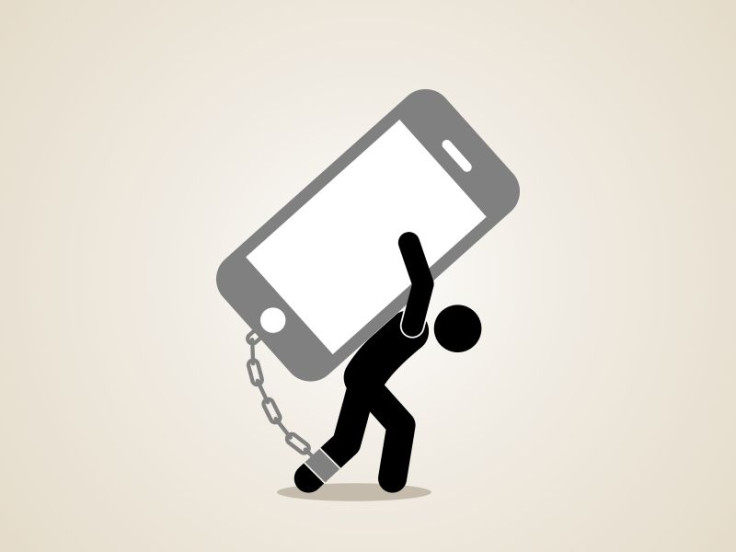iPhone Separation Anxiety Leads To Loss Of Self, Negative Physiological State

Cellphones have become an extension of our arm. They’re our personal assistants, social calendars, and connection to the outside world, and we rely on them so much we actually experience “serious” separation anxiety when we become unplugged. Researchers from the University of Missouri took away unsuspecting study participants’ iPhones to see how they handled it, and the results were published in the Journal of Computer-Mediated Communication.
Researchers asked 40 iPhone users to sit at their own cubicle and complete two different word search puzzles. Participants were told they were testing out a new wireless blood pressure cuff, while in reality researchers were just seeing how their body would react once they had their precious iPhone taken away. They completed their first word search puzzle with their iPhone in their possession, and their vitals and puzzle performances were recorded.
But then researchers said their phones were causing “Bluetooth interference” with the wireless blood pressure cuff, and they needed to remove their phones for the rest of the experiment. They completed the second puzzle, and afterward their vitals and performances were recorded along with their self-reported levels of anxiety.

Downs Of Cellphone Dependency
"Our findings suggest that iPhone separation can negatively impact performance on mental tasks," the study’s lead author Russell Clayton, a doctoral candidate at the MU School of Journalism, said in a press release. "Additionally, the results from our study suggest that iPhones are capable of becoming an extension of ourselves such that when separated, we experience a lessening of 'self' and a negative physiological state."
Not only did the participants say they felt an increased level of anxiety, had higher heart rate and blood pressure levels, but they also showed a “significant decrease” in their puzzle performance once their iPhones were taken away. During the second puzzle, participants couldn’t locate nearly as many words as they could the first time while they had their cellphone closeby.
According to the researchers, the study’s results indicate iPhone users “should avoid parting with their phones during daily situations that involve a great deal of attention.” If users don’t keep their cellphones in hand while sitting in conferences and meetings or while completing work assignments and tests, researchers believe it could result in “poorer cognitive performance.”
But what happens to human social connectedness? In a study published last month from pediatricians, electronics interfere in human relations. Mothers who pulled out their cellphones during a meal had 20 percent fewer verbal and 39 percent nonverbal interactions with their children. They lost many of their little one’s smiles, head nods, eye contact, and hand gestures that indicate active listening, and of course missed out on their child’s stories and daily news updates.
Maybe being connected all of the time will do more damage in the long run. Or maybe we’re all too addicted to technology to even realize our dependency in the first place.
Source: Clayton RB, Leshner G, and Almond A. The Extended iSelf: The Impact of iPhone Separation of Cognition, Emotion, and Physiology. Journal of Computer-Mediated Communication. 2015.
Published by Medicaldaily.com



























